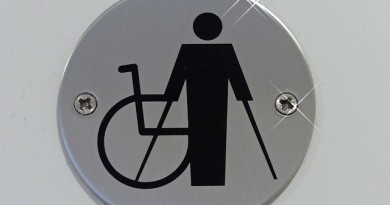How Much Does It Cost To File For Bankruptcy?
The cost of filing bankruptcy varies greatly depending on the attorney fees incurred. Bankruptcy is filed in a federal court, so the court costs for filing bankruptcy are the same in every state. Court costs for filing bankruptcy are $306 for a chapter 7, $281 for a chapter 13 and $1046 for a chapter 11. However, attorney costs for filing bankruptcy vary greatly per location, lawyer and what type of bankruptcy is being filed. The average attorney cost to file bankruptcy is $700- $5000 for a chapter 7 for an individual, $2000-$10,000 for a chapter 13 for an individual, and $25,000-$500,000 for a business.
How Much Does It Cost To File Personal Bankruptcy?
The cost of filing bankruptcy for an individual ranges from $300-$10,000. The cost varies depending on whether an attorney is hired or not and what type of bankruptcy is filed. If the debtor chooses to file without an attorney the cost of filing bankruptcy ranges from $281-$1046 depending on the type of bankruptcy that is filed. If an attorney is hired, the cost to file ranges from $1000-$10,000. Attorney fees are cheapest when a chapter 7 bankruptcy is filed and most expensive when a chapter 11 bankruptcy is filed. In the United States, some states will waive the cost of the court bankruptcy fee for special circumstances.
Small Business Bankruptcy
The cost to file bankruptcy is far more expensive for a business than for an individual person. The court cost to file bankruptcy is the same for a business as an individual person; however, the attorney fees are thousands of dollars more for a business bankruptcy than for a personal bankruptcy. Attorney fees for business bankruptcy range from $25,000-$500,000. Average attorney fees for a small business are $25,000-$50,000. Fees for a medium sized business are $50,000-$100,000. Fees for a large business are $100,000-$500,000. The cost to file bankruptcy for a business varies per state.
Chapter 7 Bankruptcy
Chapter 7 bankruptcy is also referred to as “straight bankruptcy”. A chapter 7 bankruptcy is when the debtor loses all non-exempt property, which is sold, and the proceeds of the sales are given to the debtor’s creditors. Chapter 7 bankruptcy is best for people who are unemployed and/or people who do not own a lot of property. Chapter 7 bankruptcy is usually relatively quick and in most cases, the debtor is debt free in around four months. Court filing fees for chapter 7 bankruptcy are $306. Attorney fees to file a chapter 7 bankruptcy range from $700- $5000. Attorney fees for filing bankruptcy vary greatly depending on location, the law firm and the experience of the lawyer. In many cases, attorney fees for filing a chapter 7 bankruptcy must be paid before the bankruptcy is filed.
Chapter 13 Bankruptcy
Chapter 13 bankruptcy is also referred to as “reorganization bankruptcy”. This type of bankruptcy is filed by debtors that would like to be able to pay off their debts over a three to five year period. Chapter 13 bankruptcy is best suited for debtors who have non-exempt property they do not want to lose. Debtors with full time jobs that make enough to cover their basic living expenses plus a bit more must file Chapter 13 bankruptcy. Court filing fees to file a chapter 13 bankruptcy are $274. Attorney fees for filing chapter 13 bankruptcy range from $2000-$10,000. Attorney fees for filing bankruptcy vary greatly depending on location, the law firm and the experience of the lawyer. In many cases, attorney cost to file bankruptcy must be paid before the bankruptcy is filed.
How Do I File For Bankruptcy?
Filing bankruptcy is a fairly complex and confusing procedure. There are numerous steps to filing bankruptcy.
- Debtors should first consider carefully their options and ensure there is no other option available for them. Debtors should then research their bankruptcy options and carefully choose the one that suits them best; chapter 7 bankruptcy is the most commonly used type of bankruptcy.
- Debtors should next research and hire a lawyer. Lawyer fees vary greatly per lawyer; lawyer fees vary depending on location, the experience of the lawyer and the law firm. A lawyer is not absolutely necessary, but highly recommended. Once a lawyer has been hired, the debtor will need to have a meeting with him or her and go over the case.
- Debtors will need to take the BAPCPA’s mean test to determine which chapter of bankruptcy they qualify for.
- Once a bankruptcy has been filed the debtor should refer all creditors to their lawyer. Once bankruptcy has been filed, it is illegal for creditors to harass the debtor.
- The lawyer will set up a meeting with the creditors, also called a 341 meeting. During the meeting, the debtor will be sworn in and asked to confirm all the debts and assets that have been listed on the bankruptcy.
- If the debtor has filed a chapter 7 bankruptcy, all their non-exempt assets will be sold and all money raised will be given to the creditors. If a chapter 13 bankruptcy has been filed, the debtor will be required to sign a 3-5 year contract for repaying creditors. The amount of repayment is based on what the debtor can afford; this is determined by the BAPCPA means test.
- Creditors have 60 days after bankruptcy has been filed to put in a claim. Debtors will be given notice after the 60 days has passed on exactly how much they owe if they have filed a chapter 13 bankruptcy or if any debts are left owing if debtors have filed a chapter 7 bankruptcy. Debts like student loans and taxes may still be owed even if the debtor files a chapter 7 bankruptcy.
- Bankruptcy stays on a person’s credit rating for ten years – during that time the debtor will need to slowly start to rebuild a good credit rating.
Should I File For Bankruptcy?
Filing bankruptcy is a very serious decision and not one to be taken lightly. However, for people that have fallen on hard times filing bankruptcy may be their best option and may in the end give them the fresh start they need. Most people file due to long-term unemployment, divorce, medical bills or excessively overextended credit. In the United States, around 50% of all bankruptcies are filed due to medical expenses. People who are being constantly harassed by creditors and have no possible way to pay them are good candidates for bankruptcy. People who are in threat of home foreclosure, losing their business or being sued by creditors could consider bankruptcy. Those best suited for bankruptcy are the elderly, those with children, those with excessive debt, and those with very small savings and property. In many cases, filing bankruptcy can stop wage garnishment, house foreclosure and stop car repossession. Filing bankruptcy is usually not a good choice for those who have the assets to repay their debt, have defrauded creditors, have incurred debt for luxuries, have had someone co-sign a loan or have previously filed for bankruptcy in the last eight years. Bankruptcy remains on a person’s credit rating for ten years.
How Much Does It Cost To File Bankruptcy In California?
Bankruptcy is filed in a federal court so the cost of filing is the same in every state. The cost to file bankruptcy ranges from $281-$1046, depending on the type of bankruptcy that is filed. The cost of filing chapter 7 bankruptcy is $306. The cost to file chapter 13 bankruptcy is $281. The cost of filing chapter 11 bankruptcy is $1046. However, some states allow the bankruptcy fee to be waived in special circumstances; these fees cannot be waived in western New York. The cost of filing bankruptcy does vary per state due to attorney fees; attorney fees range from $700-$10,000 for personal bankruptcy. The cost of attorney fees for filing business bankruptcy range from $25,000-$500,000 depending on the size of the business. States like California, Hawaii, Connecticut, New Jersey, New York and Maryland that have a high cost of living generally have the highest bankruptcy attorney fees. Debtors living in states with a high cost of living like California can expect to pay hundreds or even thousands of dollars more than debtors living in states with a low cost of living. The cost to file bankruptcy is more expensive in large cities than in small cities and rural areas.
Filing Bankruptcy Without An Attorney
Filing bankruptcy can be very stressful and confusing, and it is highly recommended that an attorney be hired to help with the proceedings. However, an attorney is not mandatory for filing bankruptcy and debtors who want to save money on the cost of filing can do so themselves. Filing without an attorney simply costs the court filing fees. The cost to file varies depending on which type of bankruptcy is filed; a chapter 13 bankruptcy costs $281 to file, a chapter 7 bankruptcy costs $306 to file and a chapter 11 bankruptcy costs $1,046 to file.
- 836SHARES






